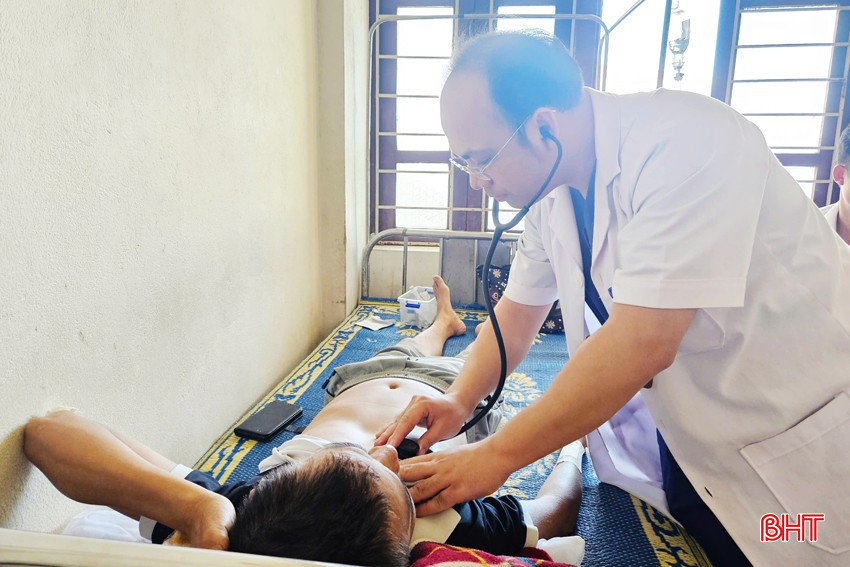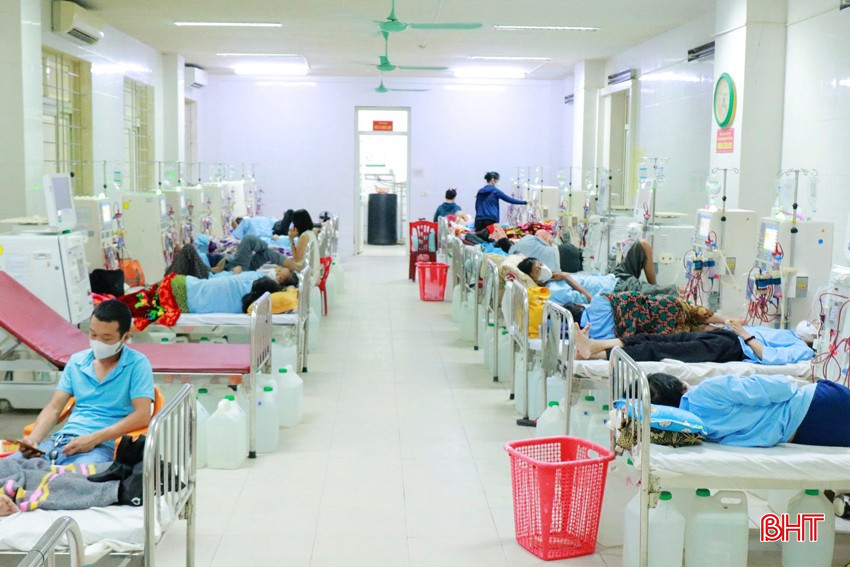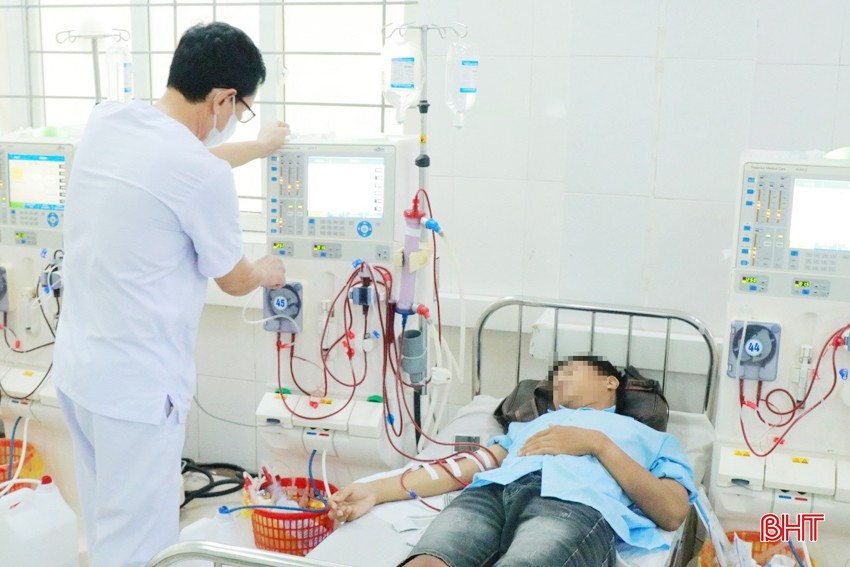Although only 41 years old, Mr. NTH (Ha Tinh City) has suffered from kidney failure for 5 years. Although he has not had to undergo dialysis, the patient still has to regularly visit the Department of Nephrology - Musculoskeletal System, Ha Tinh Provincial General Hospital for treatment. The first signs when the patient has this disease are frequent insomnia, headaches, pain in the limbs and decreased libido... It was only when he went to a medical facility for examination and specialized tests that he discovered he had kidney failure.
Mr. H. said that since he discovered his kidney disease, his daily life has been greatly affected. Because he has to go to the hospital frequently for treatment, his work has been interrupted, and he is psychologically worried and anxious.

Mr. H. is one of dozens of patients with kidney failure being treated at the provincial General Hospital. According to the Department of Nephrology - Musculoskeletal, on average, the department receives and treats about 60 inpatients each day, of which 30-40 are kidney failure patients, of which nearly 40% are under 40 years old. In particular, recently, the department has received and treated many patients with kidney failure who are only 17-20 years old.
In addition to the patients treated at the Department of Nephrology - Musculoskeletal, at the Hemodialysis Area, there are also dozens of patients aged 18 to 40 who are undergoing dialysis, with a frequency of 3 sessions a week. These are patients with end-stage renal failure, forced to undergo dialysis.

Doctor Nguyen Sy Trinh, Head of the Department of Nephrology - Musculoskeletal, Ha Tinh General Hospital said: Through the treatment process for patients, it shows that, in addition to the problem of diseases related to glomerulonephritis, the living and eating habits of young people today are the cause of increasing kidney failure. Regular use of soft drinks, drinks of unknown origin, eating instant noodles, and eating salty foods for a long time also promotes metabolic diseases, including chronic kidney disease.
On the other hand, irregular living habits, not following the biological rhythm such as using the phone to forget to sleep, sleeping at the wrong time also affect the body's metabolic damage. Sedentary lifestyle, obesity, early hypertension also affect chronic kidney disease. What is worrying is that people do not have the habit of regular health check-ups, while kidney disease often progresses very silently, the early stages often have no symptoms, so when detected, it is already severe.

According to medical experts, kidney disease, if detected at an early stage, will help prolong the time of conservative treatment, at which time the patient only needs to take medication, the cost of treatment is low, and the treatment is highly effective. However, when the disease is detected at a late stage, it leads to high treatment costs, shortened conservative treatment time, greatly affecting health and quality of life.
“Kidney failure can occur at any age and gender, so to limit the risk of chronic kidney failure, each person needs to maintain a healthy diet, increase the intake of vegetables, drink plenty of water, reduce the amount of salt in the diet, exercise regularly to improve health, and use medications as prescribed by the doctor. In particular, people need to have regular health check-ups to detect abnormal signs and treat them promptly, avoiding kidney diseases from progressing to chronic kidney failure. If someone in the family has kidney failure, blood relatives should screen for kidney function, have blood tests, and urine tests to assess and detect pathological problems early,” Dr. Nguyen Sy Trinh recommended.
In Vietnam, there are currently more than 8.7 million adults with chronic kidney disease, accounting for nearly 13% of the population. What is worrying is that the number of people with chronic kidney disease in Vietnam is getting younger. If in the past, kidney failure only appeared in the 60-year-old group, now the rate of young people between the ages of 18 and 30 with kidney disease is increasing, accounting for 20% to 30% and is expected to increase even more in the near future.
Source: https://baohatinh.vn/nhieu-nguoi-ha-tinh-suy-than-moi-17-20-tuoi-bac-si-len-tieng-canh-bao-post289099.html






























































































Comment (0)